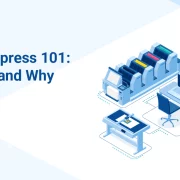
SMEs: The Secret Ingredient for Exceptional Content
Summary
This article provides an overview of the roles and responsibilities of SME experts. It also provides a brief overview of the benefits of working with SMEs and how to use them for content creation.
When it comes to creating high-value business or educational content, most companies rely on a go-to person to help answer specific questions or provide insights into a particular topic. This individual could be an in-house expert or an external consultant recognized as the Subject Matter Expert (SME) in their respective domain.
Even as AI technologies increasingly generate blogs and marketing material, the depth and wisdom offered by SME experts remain unparalleled. To maintain a competitive edge, turning to these experts for content creation can be a strategic move. However, merely incorporating SMEs doesn’t assure success. The key lies in crafting an effective roadmap for their expertise.
Read on to explore the roles and responsibilities of subject matter experts and discover how they can be the transformative element in your content journey.
Table of Contents:
- Who Is a Subject Matter Expert?
- Benefits of Working with Subject Matter Experts
- How to Use SMEs for Content Creation?
- Conclusion
Who Is a Subject Matter Expert?
Subject Matter Experts (SMEs) are individuals with deep knowledge and expertise in a specific field, topic, or industry. Their proficiency often stems from years of experience, education, or both, allowing them to provide insights that are both comprehensive and nuanced.
They are the go-to folks when it comes to in-depth insights and guidance on a specific niche and can include different industries, academics, researchers, professionals, or other individuals.
Although there is no roadmap to becoming an SME expert, the roles and responsibilities of subject matter experts include the following:
- Providing guidance and innovative solutions to business issues
- Setting a standard in a particular field through innovative solutions, research, or path-breaking execution
- Consulting businesses or clients on relevant areas and suggesting improvements
- Having a fresh perspective or deep expertise in a particular subject
- Imparting deep knowledge on a particular subject to freshers or other team members to help them improve their understanding of the chosen niche or business area
When it comes to the field of content, SMEs play a pivotal role in ensuring that the information presented is accurate, up-to-date, and relevant. Their input can greatly enhance the depth and breadth of the content, providing readers with a richer and more comprehensive understanding of the subject at hand.
Also Read: The Secret SAUCE for Creating Great Content
Benefits of Working with Subject Matter Experts
Collaborating with SME experts transcends mere knowledge acquisition; it’s a gateway to crafting content from SME that’s compelling, pertinent, and precise. Here are some advantages of partnering with SME experts:
Below are some benefits of working with SME experts:
1. Improved Credibility
Content that is value-driven and relevant naturally gets more engagement and traffic, leading to improvement in SEO ranking.
When readers or consumers know that an expert in the field has contributed to or vetted the content, they are more likely to trust and value the information presented. Since SMEs bring expertise and credibility, these blogs are considered highly valuable for Google’s E-A-T algorithm (Expertise, Authoritativeness, Trustworthiness), ensuring they stay relevant longer.
2. Streamlined Content Creation
SME experts do not just improve your content quality but can also help you write blogs that are highly relevant to your niche or industry. Thus, instead of merely focusing on a particular content type, you can expand your content development to include blogs, real-world examples, case studies, and anecdotes that add authenticity and depth to your subject.
3. Improved Trustworthiness
SMEs possess a profound understanding of their industry, enabling them to provide insights and data that others may not have access to. For example, technical subject matter experts can write about technologies or trends that are fresh and relevant to the industry, making it highly targeted and credible.
This helps you to build trust among your target audience and provide fresh perspectives to stand out in a cluttered digital landscape.
How to Use SMEs for Content Creation?
To truly excel in creating SME content using SME experts, make sure you follow a strategy that maximizes their expertise while aligning with your content objectives.
Follow the steps mentioned below to work with SME experts and incorporate their knowledge into your content development process:
1. Establish Clear Objectives
The first clear step when working with SMEs is to define the expected outcome. Whether you’re aiming to rejuvenate existing content or targeting specific milestones, having well-defined objectives sets the tone for collaboration.
For example, you may use SMEs to improve the traffic to your website or have them spruce up educational content for your learning materials. Whatever the goal may be, have clearly defined objectives to make it easier for your team and the SME to know what we have to achieve.
2. Choose the Content That Needs to Be Developed
Next, define the type of content that needs to be created. Some of the common projects with SMEs involve the following:
- Blogs
- Whitepapers
- Buyers Guide
- How-To Content
- eBooks
- Video Content
Depending on the type of content you have selected, you need to work with the SME experts to get the content in the format you expect.
3. Select the Right SME
Make sure to find the right SME for the requirement. For example, if you need an SME for a technical niche, you should get on board someone with relevant industry experience. Discuss this with your internal team to see if there is someone within your organization who can help with content creation.
SMEs need not always be someone who is well-known or has rich experience. The idea is to have someone who knows the niche and can provide valuable inputs for content creation. This way, the content remains authentic, accurate, and insightful.
4. Research the Topic
Although working with an SME can be interpreted as not requiring research, this is usually not the case.
Take the instance of generating content on cybersecurity. Even with a technical SME on board, it’s crucial to be well-versed with current discussions in the field, understand the existing content landscape, and be clear about the objectives your brand seeks to achieve. This way, the SME expert has to provide their input, and your team can take notes to incorporate their insights into the final content.
5. Set a Content Development Process
After the first few iterations, it is essential to have a set process with the SME. You can publish and track the outcomes of your content and use this as the basis to craft a content development plan.
Ensure that the process fits into your overall development process and doesn’t stress your team. Having a set process also helps improve the quality and speed of the content outcome, helping create ideal content for your target audience.
Also Read: Why SMEs are Important in EdTech Companies?
Conclusion
In the ever-evolving content marketing landscape, Subject Matter Experts are the secret ingredient that can transform ordinary content into something extraordinary. Their expertise, credibility, and unique insights can make your content stand out in a crowded digital world.
As you venture forth in your content creation journey, don’t underestimate the value of SMEs. Identify, engage, and collaborate with these experts, and watch as your content takes on a new dimension of authenticity and authority.
If you are unsure about your content SME, we recommend partnering with an eLearning solutions company like Hurix Digital that can help you update your content for the digital era.
Get in touch with our experts today to know more!

Vice President – Digital Content Transformation. He is PMP, CSM, and CPACC certified and has 20+ years of experience in Project Management, Delivery Management, and managing the Offshore Development Centre (ODC).








